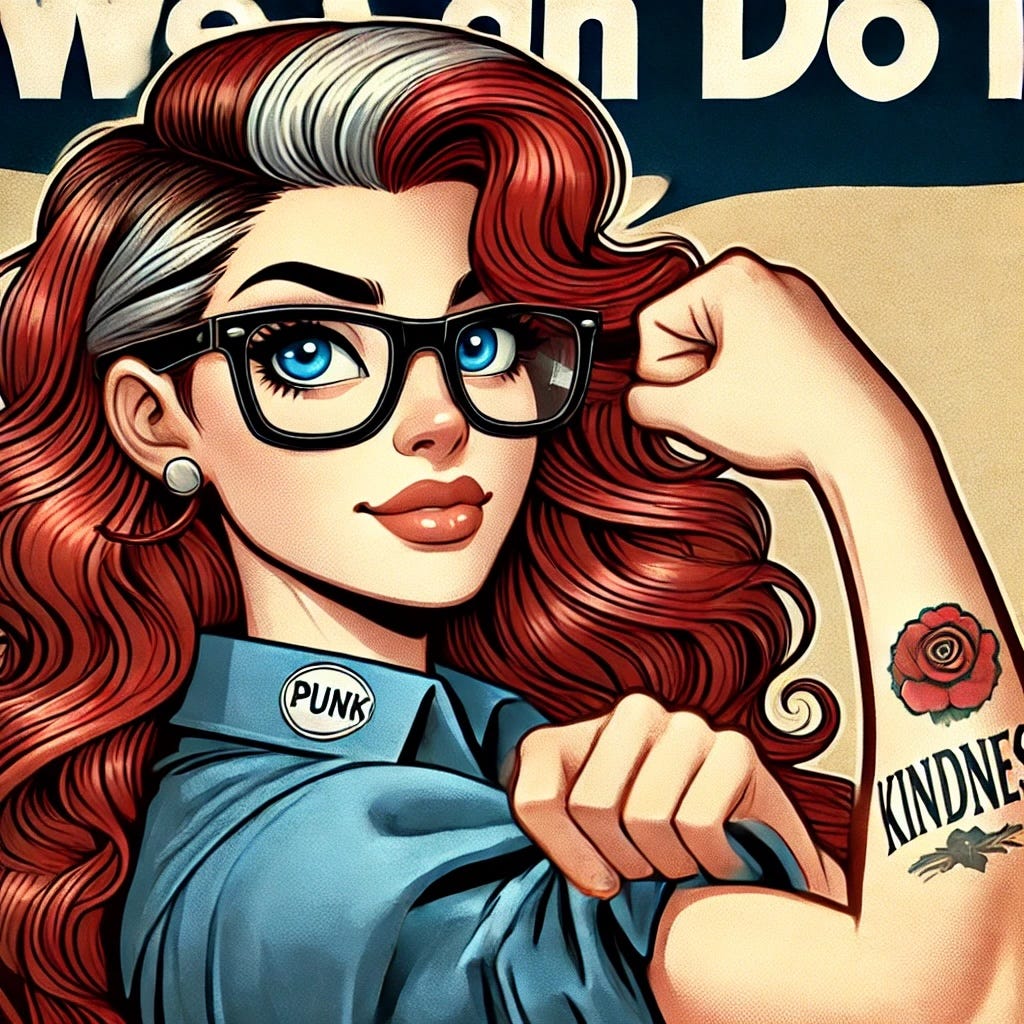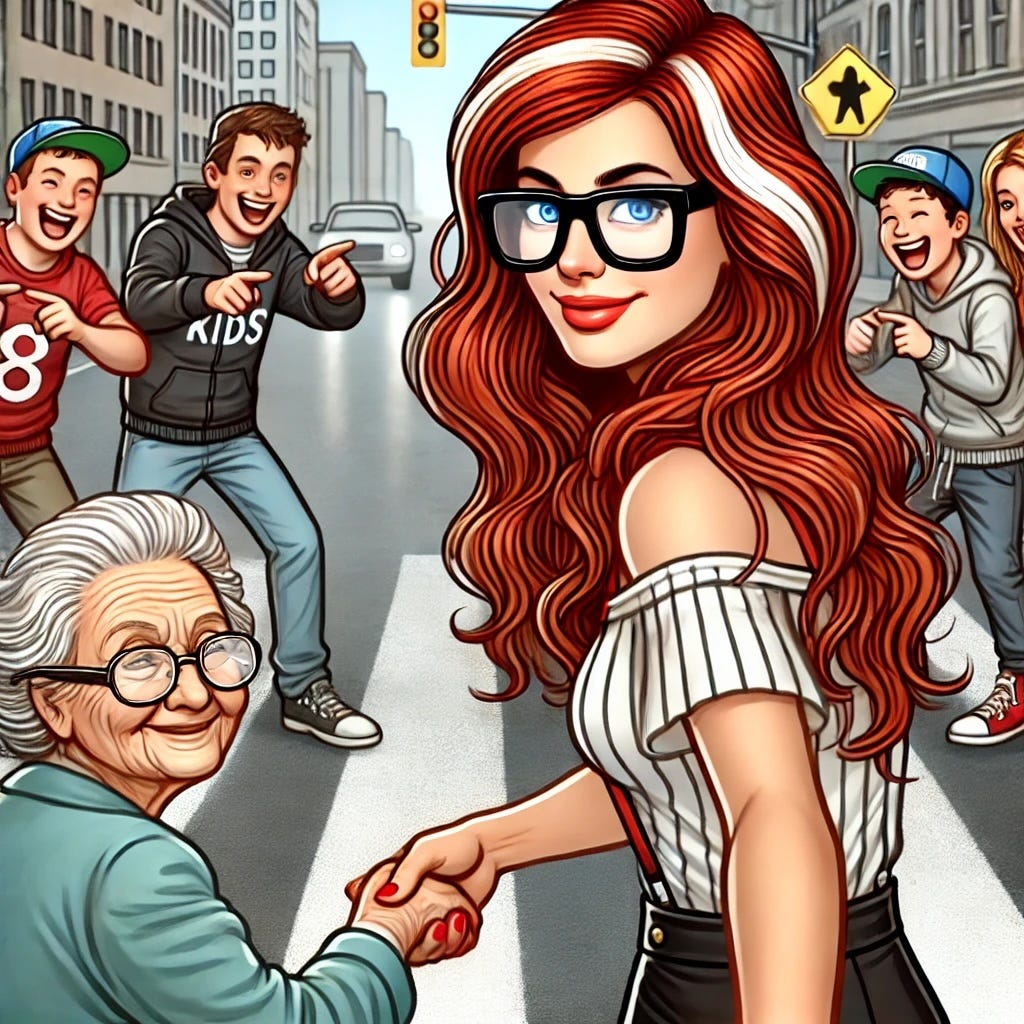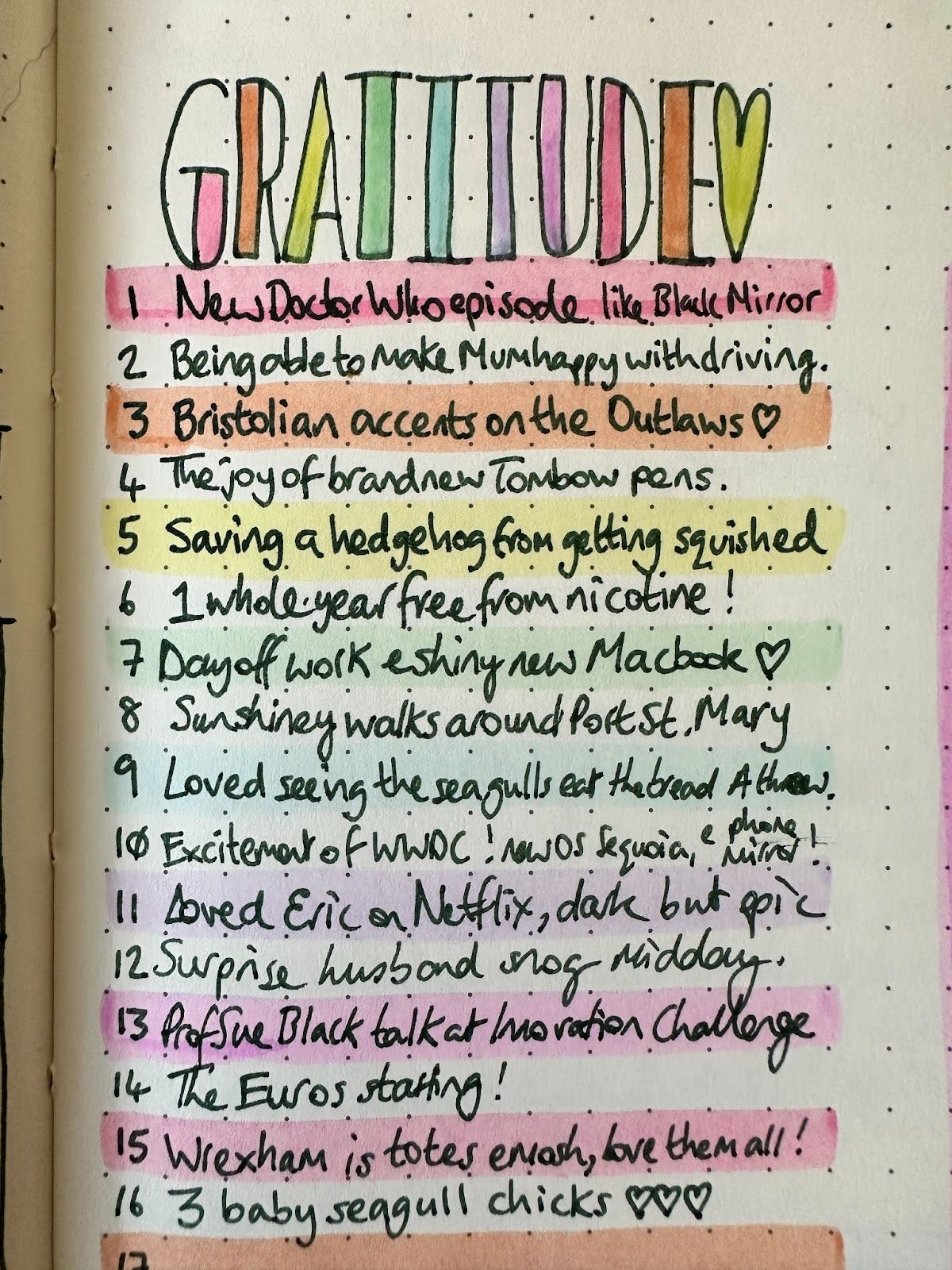🌸 ikigai 生き甲斐 is a reason for being, your purpose in life - from the Japanese iki 生き meaning life and gai 甲斐 meaning worth 🌸
Somewhere along the way, society decided that swaggering around with a scowl and a cynical attitude made you look more like a rock star. That having the aloofness of a mysterious hacker or the sass of a comic book anti-hero was the epitome of cool.
Kindness got stuck with the image of a librarian or a knitting Nana.
Is it gendered too, easier to picture a kind Nana than a successful male CEO having that trait?
But the truth is, kindness is the ultimate superpower—it lowers blood pressure, releases feel-good hormones like oxytocin, spreads positivity like glitter, is a magnet for good vibes, and makes you the real hero of any story.
So while some are busy trying to look tough, cool or edgy; kind peeps are secretly living longer, happier lives, spreading joy, and saving the day with a smile. *THAT’S* cool, don’t you think?
I want to live in a world where kindness is cool. So I’ll keep trying to push through my gawky, awkward phase and learn how to brazen it out.
What happens when we are kind?
Kindness goes beyond being polite, it involves actions that benefit others, often at a personal cost. It’s a conscious choice to act with empathy, compassion, and the willingness to help others without expecting anything in return.
Optimism is more than just a sunny disposition. It’s a mindset that focuses on positive outcomes and the belief that challenges can be overcome. It’s about maintaining hope and resilience in the face of adversity.
Kindness and oxytocin are closely linked through a fascinating biochemical relationship that significantly impacts human behaviour and well-being.
Oxytocin, often referred to as the "love hormone," plays a critical role in social bonding, empathy, and trust.
When we engage in acts of kindness, our bodies often release oxytocin, enhancing feelings of happiness, reducing stress, and fostering social connections. This hormone promotes prosocial behaviours by making people more empathetic and willing to help others.
The release of oxytocin also has a positive feedback loop. Engaging in kind acts increases oxytocin levels, which in turn makes individuals more likely to continue engaging in kindness, creating a cycle of positive social interactions and improved mental health.
Barriers to kindness
Have you felt that subtle eye roll when you mention optimism or kindness as a core value? Is it cynicism or something deeper?
I read a BBC article recently, What stops people from being kinder? which explores various psychological and social factors that inhibit acts of kindness. They carried out the world’s largest ‘kindness test’, key findings include;
Fear of Misinterpretation: People often hesitate to act kindly due to the fear of their actions being misinterpreted. For instance, offering a seat to someone who might not need it can lead to embarrassment or rejection.
Personality Traits: Personality plays a significant role, with extroverts and those high in agreeableness and openness more likely to engage in kind acts. These individuals are less fearful of the potential negative outcomes of their kindness.
Cultural Differences: There are notable differences in how kindness is perceived across cultures. For example, the fear of kindness being seen as a weakness is more prevalent in the UK compared to the US, where social media use is more commonly cited as a barrier to kindness.
“Just over a quarter of people worried about their kindness being perceived as a weakness. Yet, after giving an act of kindness, people not only feel more connected to others and happier but also feel that it adds meaning to their lives”.
This highlights the paradox where the fear of appearing weak prevents acts that ultimately foster happiness and social connection.
Advocates for kindness
Kindness is an important value to me and my pursuit of Ikigai, journaling is part of how I unlock its power. I see optimism and kindness as foundations for thriving communities, both online and IRL (in real life).
Dr. Rick Hanson, author of Hardwiring Happiness writes about the power of positivity to defeat our tendency to negativity bias. “Recent scientific breakthroughs have shown that we can deliberately improve brain structure, a process known as self-directed neuroplasticity. Whatever we repeatedly sense, feel, and believe makes real changes in our neural networks.”
Martin Seligman, the father of positive psychology, also advocates for the profound benefits of optimism. He states, “Optimism is invaluable for the meaningful life. With a firm belief in a positive future, you can redirect your life, build and achieve goals, and overcome adversity.” Seligman’s work demonstrates that optimism not only enhances mental health but also leads to greater achievements and a more fulfilling life.
The Dalai Lama, a global symbol of compassion, teaches that kindness is essential for a harmonious world. He says, “My religion is very simple. My religion is kindness.” His philosophy emphasises that kindness and compassion are universal responsibilities that transcend religious and cultural boundaries, promoting global peace and empathy. "If you want others to be happy, practice compassion. If you want to be happy, practice compassion."
Contrarian perspectives
While many advocate for the power of optimism and kindness, there are also critics. Some argue that these values can be unrealistic or even detrimental in certain contexts.
Nassim Nicholas Taleb, author of The Black Swan criticises what he calls "naive optimism." He argues that excessive optimism can blind individuals to risks and lead to poor decision-making. Taleb believes that a more sceptical, critical approach is necessary to navigate a complex and uncertain world.
Barbara Ehrenreich, in her book Bright-Sided argues that an overemphasis on positive thinking can lead to denial of reality and prevent people from addressing real problems. She suggests that a balanced view, which includes acknowledging negative aspects of life, is more realistic and healthier.
It’s important, as with anything in life, to have a balance.
Personally, I’d rather err on the side of kindness *grin*
Practical Steps to Cultivate Kindness & Optimism
There are many benefits to an optimism workout;
ikigai boost; Kindness fuels your mission and calling, helping others aligns with a purpose greater than oneself.
improved mental health; Kindness reduces stress and anxiety, promoting a sense of connection and belonging.
enhanced relationships; Acts of kindness strengthen bonds, creating a more supportive, positive and optimistic environment.
Daily Practices; Start each day noticing a small joy, cultivate the habit of capturing a new photograph a day, perhaps a beautiful flower, a baby seagull chick, or an unusual insect. Don't end the day without filling out a gratitude line or two in your journal, noting things you’re thankful for. Seek out opportunities to make others happy like paying for someone’s coffee or leaving a beautiful poem or compliment for someone else to find. Say something nice to someone walking towards you on the street.
Community Engagement; Get involved in local community projects or charitable organisations. Create a support network of friends and family who value kindness and optimism. Be a beacon to those around you, reframe negative thoughts or words into opportunities for kindness.
Ikigai Journaling Practice; Dedicate time each week to reflect on how acts of kindness and optimism have impacted your life. Consider how these values align with your passions, skills, and the needs of the world. Reflect on situations where you witnessed or practised kindness. Did it improve your day? How can you integrate more opportunity to practise kindness in your ikigai pursuit?
Random Acts of Kindness: Leave a positive note, smile at a stranger, or volunteer time. Small acts create a ripple effect.
Optimism and kindness may sometimes be undervalued, but their power to transform lives and societies is undeniable.
It may not be cool but it’s brave to stand out rather than fit in
I maintain that kindness is not naiveté; it's a superpower. By embracing these values we enhance our personal well-being as well as contributing to a more empathetic and connected world.
When cultivating kindness I fuel my ikigai, build stronger community ties, and spread some sparkle for a more positive future.
What small act of kindness can you commit to today?
Share your thoughts and experiences in the comments below! Let's make kindness and optimism cornerstones of our ikigai journeys, together.
I’m Sarah, Seeking ikigai, thank you SO much for reading xxx
PS; Love ChatGPT for introducing me to this gorgeous song today; Good People by Jack Johnson;







Beautiful post. Always love your artwork. Its a timely and important message, too. Kindness. Empathy. Open our hearts to open up our lives. Meaningful connections. Lots of really good insights in this post.
I love giving random strangers compliments. ♥️♥️